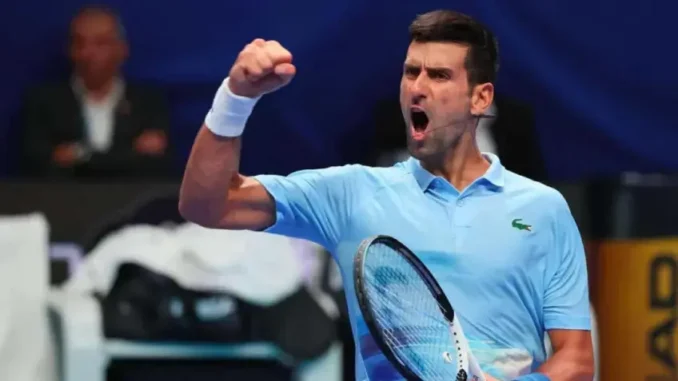
The world of professional tennis is a dynamic ecosystem, a constant interplay of competition, strategy, and evolving partnerships. Recently, news emerged of a fascinating coaching collaboration that has sent ripples through the tennis community: Fernando Verdasco, the veteran Spanish player, has joined forces with none other than Novak Djokovic, the world number one, in a coaching capacity for the Doha tournament. This unexpected alliance has sparked considerable interest, raising questions about the nature of their collaboration, the potential benefits for Djokovic, and what it signals about Verdasco’s own future in the game. This partnership, however temporary it may be, offers a unique insight into the intricate world of high-level tennis and the constant pursuit of improvement, even at the pinnacle of the sport.
Djokovic’s status as the world’s top player is a testament to his unwavering dedication, exceptional talent, and relentless pursuit of perfection. He has achieved almost every conceivable accolade in the sport, cementing his place among the all-time greats. Yet, even at this level, the quest for improvement is a continuous process. Djokovic’s decision to bring Verdasco into his coaching team, even for a short period, underscores this very point. It highlights his openness to new perspectives, his willingness to explore different training methods, and his understanding that even the smallest adjustments can make a significant difference at the highest level of competition.
Verdasco, a seasoned veteran with a long and distinguished career, brings a wealth of experience to the table. He has competed against the best players in the world for many years, and he possesses a deep understanding of the game’s intricacies. His knowledge of match strategy, his insights into different playing styles, and his understanding of the mental and physical demands of professional tennis could prove invaluable to Djokovic. While the specifics of their collaboration remain undisclosed, it’s reasonable to assume that Verdasco’s role will involve providing Djokovic with tactical advice, offering support during practice sessions, and perhaps even sharing his own experiences of playing against some of Djokovic’s toughest rivals.
The temporary nature of this coaching partnership is also noteworthy. It suggests that Djokovic is not looking for a long-term replacement for his existing coaching team. Rather, he seems to be seeking a fresh perspective, a different voice that can offer new insights and perhaps help him fine-tune certain aspects of his game. This approach is indicative of Djokovic’s proactive approach to his career. He’s always looking for ways to improve, to adapt, and to stay ahead of the competition. Bringing in Verdasco, even for a short time, reflects this commitment to continuous improvement.
The collaboration between Djokovic and Verdasco also raises questions about Verdasco’s own future in professional tennis. While he is still an active player, his career is undoubtedly winding down. His transition into a coaching role, even a temporary one, could be a sign that he is beginning to explore other avenues within the sport. It’s possible that this experience with Djokovic could pave the way for a more permanent coaching career in the future. Whether or not Verdasco decides to pursue coaching full-time remains to be seen, but his involvement with Djokovic certainly provides him with a valuable opportunity to gain experience and build his reputation in the coaching world.
The dynamics of this player-coach relationship are also fascinating to consider. Both Djokovic and Verdasco are highly competitive individuals with a deep passion for the game. Their shared experiences on the tour, their understanding of the pressures and challenges of professional tennis, and their mutual respect for each other’s abilities create a strong foundation for a productive collaboration. It will be interesting to observe how their dynamic unfolds during the Doha tournament and whether this temporary partnership evolves into something more substantial in the future.
Ultimately, the collaboration between Fernando Verdasco and Novak Djokovic is a testament to the ever-evolving nature of professional tennis. It highlights the importance of continuous improvement, the value of diverse perspectives, and the dynamic relationships that exist between players and coaches. While the specifics of their partnership may remain private, the very fact that it exists speaks volumes about the dedication and professionalism of both individuals. It’s a reminder that even at the pinnacle of the sport, there’s always room to learn, to grow, and to evolve. The tennis world will be watching closely to see what impact this unique collaboration has on Djokovic’s performance in Doha and what it might signal about the future careers of both players.
Leave a Reply